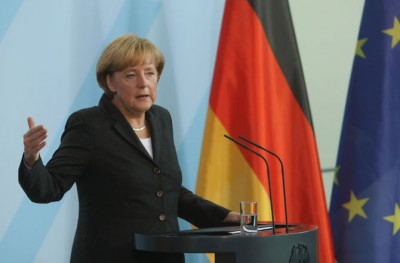Political Crisis in Germany, The Berlin Truck Attack and the Refugee Question

The hard-nosed neo-cons were certainly showing little interest in linking arguments, examining evidence, or even considering elementary logic in the aftermath of the Berlin truck attack near the Gedächtniskirche. With the bodies fresh in the morgue, former US ambassador to the United Nations, John Bolton, peered into the mind of the everyday German, and found teeth chattering fear.
“Many Germans feel as though they’ve lost control of their country – it’s not a feeling that’s unknown elsewhere in Europe.” For it was Chancellor Angela Merkel who had been “the biggest symbol across the continent of somebody that is open to this policy – it’s aroused a lot of resentment.”
Fittingly, Bolton decided to reference Europe’s self-assumed populist, Viktor Orbán (“the controversial president of Hungary”) who wanted it put on record that he did not intend paying “for Germany’s mistake.”
The German political classes were certainly turning black and blue attempting to explain the slaughter in Berlin. Rather than putting it down to plain criminality, it had to be twinned with other causes.
Would this effort be a triumph of mind over matter? Chancellor Merkel did what she has always done: reiterate, remind and calm. “We will find strength for the life we want to live in Germany – free, united, and open.”
She did add one vital qualification, a note soured by the deadly events at the Christmas market. Setting out the vision of openness was one thing; the corpses, however, had suggested a modification of tone, a possible bitterness. It would be “particularly difficult for all of us to tolerate a situation in which the perpetrator had come to Germany as a refugee.”
It would be “particularly repulsive with respect to the many Germans who are engaged daily in providing assistance to refugees and with respect to the people who really need our protection and who are doing their best to integrate.”
The other side of populism, one blackened by fear and anticipation, is certainly coming into full view. Much of the groundwork had already been laid by the attacks in Würzburg and Ansbach during the course of the summer.
Horst Seehofer, the governor of Bavaria and also leader of the Christian Social Union, had little time for any analysis that urged provident reaction or a steady approach. “We owe it to the victims, their families and the entire populace to rethink and readjust our entire immigration and security policies.”[1]
A close reading of Seehofer’s mine-deep angst gives a sense that he wants to survive – badly. The grieving families do count on some level, but so does his political position in Bavaria against the nibbling advances made by the far right Alternative für Deutschland (AfD).
Much of the reasoning behind embroiling refugees and immigrants in a criminal matter was not very sound (Merkel’s own CDU colleague Klaus Bouillon even referred to the attack as part of a “state of war”), but Frauke Petry, chairwoman of the AfD, came up with a brutal, if simple response. “Germany is a divided country on the question of immigration. Terror will unite us.” Immediate steps included closing the mosques with jihadi preachers, and stopping uncontrolled immigration.
German MEP Marcus Pretzel, who has previously urged the use of armed fore against asylum seekers, also joined the party of condemnation. “When will the German rule of law strike back? When will this cursed hypocrisy end? It is Merkel’s dead!”
Police accounts have been altering rapidly, making any immediate assessment by critics of Merkel’s policy premature. First, the driver was supposedly arrested at another venue, only to then be released. He was said to be a Pakistani asylum seeker – only he wasn’t the one driving the truck. Attention has now shifted to a Tunisian suspect, Anis Amri, who had piqued the interest of authorities for having suspected ties with Islamic State.
In an environment where the next ridiculing hashtag, or chattily gormless Facebook post, takes precedence over investigative groundwork, any announcement of progress is bound to become a political weapon. Key words are highlighted for gain: “Islamic State”; “asylum seeker”; “refugee”. Cobbling them together in speech negates the need for a sensible refugee policy.
One murderous asylum seeker (and of this, we know little of yet) is taken to tarnish all refugees and condemn a policy that is not only sagacious for Germany’s demographic future, but humanitarian. Ergo, such refugees should have remained in static putrescence, harbouring in camps in Jordan, already awash with hundreds of thousands of Syrians, not to mention other refugee groups. The modern refugee dilemma is one of unequal treatment and unequal distribution, clouded by demagogy.
The moral of such spellbindingly erroneous arguments is that it is better to stay in a dangerous home, be killed, gassed, tortured and raped, rather than journey with the cloak of international protection to other countries. If you do decide to leave a destroyed city or state of total impoverishment, be of perfect ethical disposition mirroring the recipient country, channelling their values. If Muslim, convert; if Christian, well, stay as you are. Orban would like you to.
Dr. Binoy Kampmark was a Commonwealth Scholar at Selwyn College, Cambridge. He lectures at RMIT University, Melbourne. Email: [email protected]
Note

